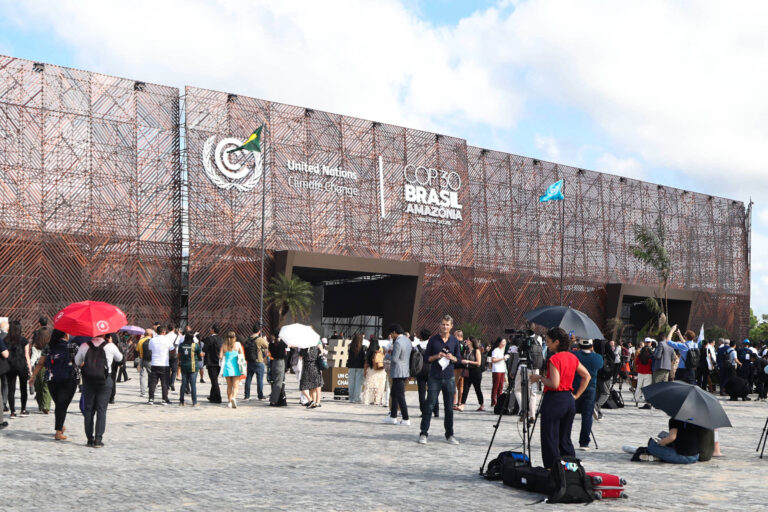
The 30th United Nations Climate Change Conference (COP30) began this Monday in the Amazonian city of Belem with a speech by Brazilian President Luiz Inácio Lula da Silva, who criticized military spending and called for securing global resources. … Toward solving climate change.
“Holding the COP here is as big a challenge as eliminating pollution on the planet. We decided to accept the challenge because it would have been easier to do it without any problems in a city that was well prepared,” he said.
The Brazilian president also defended the work done for Belém COP as leaving a legacy for the local population, reminding them that the Amazon is not an “abstract entity” but a place where people with real problems live.
Lula criticized leaders who deny global warming, calling for a “map for the end of oil use” that would set a deadline by which Brazil could explore what it wants in the Amazon. “It’s time to impose another defeat on the naysayers,” he said, indirectly quoting former US President Donald Trump. “They’re attacking institutions, science, universities,” he says. “It’s time to hand the deniers yet another defeat.” He also regretted that the United States, the world’s largest emitter of greenhouse gases in history, did not attend the summit. “The United States has decided not to attend the summit while President Donald Trump falsely claims that climate change is a hoax.”
The President also cited recent extreme weather events as evidence of the urgency for action. “Climate change is no longer a threat of the future, but a tragedy of the present. Hurricane Melissa, which hit the Caribbean, and the tornado that hit Paraná in southern Brazil left a trail of death and destruction,” he said. Lula was referring to this weekend’s disaster, which left seven people dead and more than 400 injured.
they doubt its viability
But as Brazil seeks to position itself as a climate leader, its main proposal, the Tropical Forest Life Fund (TFFF), is facing resistance. As revealed on the UOL portal, Germany has decided not to support the fund at this stage. German Chancellor Friedrich Merz left Brazil without announcing any contributions, but diplomatic sources said there were “significant risks” to Brazil’s proposed fiscal model. Britain would have withdrawn for similar reasons.
TFFF aims to raise $25 billion from countries and $100 billion from private investors, which will be allocated to bond funds. Profits will be shared between investors and the countries protecting the forests. But critics, including German economist Max Alexander Massey and his advisor Aidan Hollis, question the model’s feasibility. That’s because the fund promises magic money returns of a fixed 7% to 8%, which is unrealistic in times of financial instability.
Critics say countries could lose their initial investment and forests could be left unpaid if yields don’t reach the expected minimum.
Model requires adjustment
The Brazilian government had expected an announcement from the German side during the TFFF launch luncheon at Leaders Dome, but there were no numbers. “We knew there were no numbers,” Anderson, one of the fund’s organizers, said. “Germany is cautious.”
Daniel, another Brazilian negotiator, acknowledged that the model still needs tweaking. “We are recalibrating our expectations. Our goal now is to reach 10 billion within a year and be able to start issuing securities. It’s a process,” he explained.
With initial donations from Brazil ($1 billion), Indonesia ($1 billion) and France (500 million euros), the fund is still far from its goal. Norway pledged 3 billion, but the fund’s disbursements were conditional on total contributions reaching at least 12 billion. The European Commission and other countries are still evaluating.
COP30 will continue until November 21, with negotiations aimed at advancing issues such as the energy transition, climate finance and environmental justice. However, the challenge of persuading rich countries to invest in structural solutions remains one of Brazil’s major obstacles.



